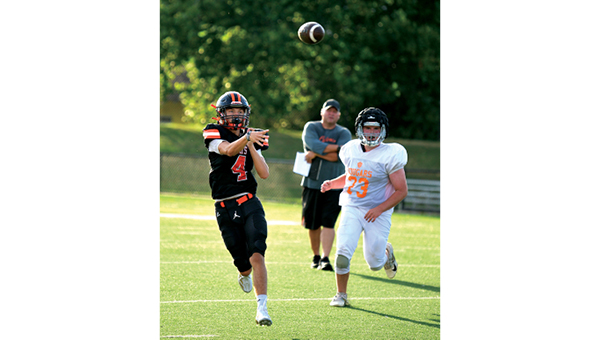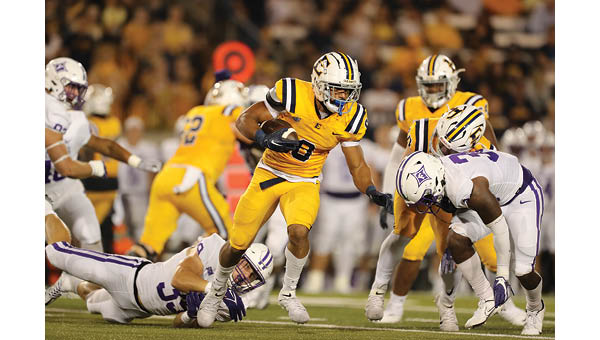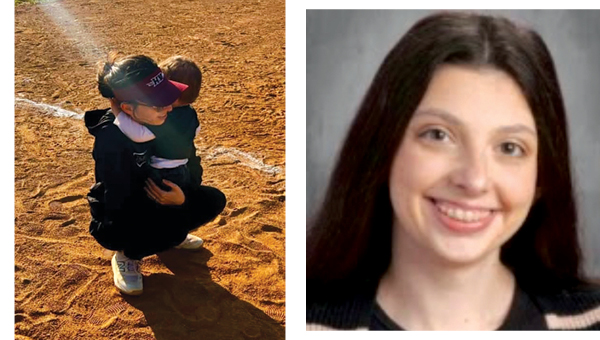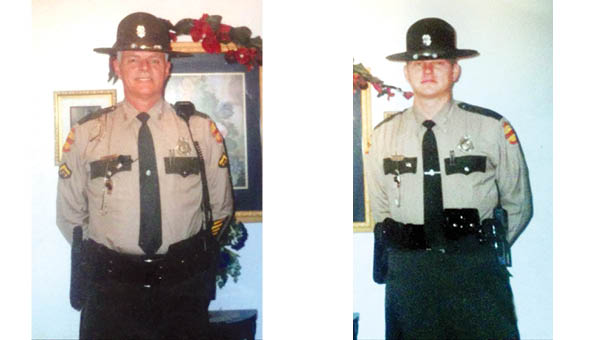They were the Kings of Sports: Bill and Henry Jenkins
Published 8:12 am Tuesday, July 30, 2019


BY C.Y. PETERS
To be a good sports writer, you must understand the games you cover. You must know all the lingo talk, have a good relationship with the players and coaches and have an excellent knowledge of the rules, officials, and any supporting cast of the sport you are covering.
Rules change from one sport to another.
Trending
For example, Little Leagues rules are different from middle school and middle school rules are different from high school and high school rules are different from college and college is different from the pros.
With that being said, Bill and Henry Jenkins were the Kings of Sports. Not only did they know the difference in rules but they understood, followed, and could write stories on almost every sporting event taking place in the United States.
The Jenkins brothers played many sports, joined the Army together, and became two of the greatest sportswriters this country has ever seen. Bill and Henry covered everything from youth club sports, high school, college, the World Series and the Superbowls.
Their accomplishments as newspaper writers have them inducted into several Hall of Fames and many top awards in the newspaper business.
The Jenkins boys grew up in Valley Forge and attended Hampton High School.
One of Henry’s big games he covered was the 1960 State Championship when Hampton won the title.
Trending
He still had his press passes for the weeks’ game and his TSSAA program along with photos in his personal collection that was recently passed on to the Scott Lusk Collection.
In 1914 the Elizabethton STAR was established and sold for six dollars a year by carrier or four dollars a year by mail.
Henry Jenkins served as Sports Editor in the 1950s before going to the Kingsport and Johnson City papers where he retired from.
Bill came to the STAR in the mid-1960s and stayed until his retirement serving as sports editor and managing Editor from 1971-78.
In the earlier days of newspaper printing, it was a long days work beginning early in the morning and not finishing till late at night.
Not only did they have to cover the stories but they had to be typed, cut out, paste on a one-sheet with jumps added and all the features, such as lines made from strips of black tape.
Both Henry and Bill were super pro’s, knowing how much type could fit in a story and leaving enough room on the jump pages.
You had to do this for each story you wrote. There were no email’s and some faxes but most stories that came in were done on the telephone or dropped off on sheets provided for coaches or bookkeepers by the STAR.
Everyone expected their paper to be there by mid to late afternoon. They wanted all the sports, including high school, college and with only two or three channels on television, they needed the pro sports as well.
The standings, who beat who, what players were doing what, all this had to be covered in the local paper.
Bill and Henry did their best and were good at covering sports and keeping up with records of all the teams.
Together they wrote several books on players and teams with stats recorded for football, basketball and baseball.
They had no internet to refer to, no Wikipedia, Google, or Facebook. They did all the research on their own.
They were not only brothers in the same field, but they were also best friends. They attended Valley Forge Freewill Church and were very active and dedicated to the church.
“Bill was not only my boss during my first years at the STAR, but he was my mentor,” said Rozella Hardin, Editorial Director of the STAR. “He taught me a lot about the newspaper.”
What I remember about him was how fast he could write a story, especially a ballgame. He also took time off to attend the All-Star Major League Baseball Game each July.
He enjoyed all sports, but especially baseball and football. I also remember the number of people who would stop by the newspaper office to talk sports with him.
He was friends with all the coaches and he especially enjoyed talking about the days when he played semi-pro baseball. For many years, he and Joe Bowling were the sports department at the STAR.
Henry started at the STAR in 1946 after serving in the military. Mr. Jenkins was in the U.S. Army and held the rank of corporal, serving in WWII.
He was in the military for five years in Company A, 117th Infantry Regiment, 30th Division and played baseball for them at Fort Jackson, SC.
He enjoyed being the manager of Little League teams for several years. He worked for a short time for the Orlando Sentinel and published several sports magazines.
He was named to the Upper East Tennessee Sports Hall of Fame and the Valley Forge Reds Baseball Hall of Fame.
Henry covered many World Series and Super Bowl games. He played baseball and basketball during his high school days at Hampton High School.
Bill loved the game of baseball and often took time each July to attend the All-Star Major League Game. He had played semi-pro baseball and served as manager of the old Valley Forge Reds.
He earned a spot on the 1948 Six Star League Team as a second baseman.
Bill also played on a baseball club at Fort Jackson, S.C. He served five years in the United States Army during World War II, in which he served 18 months overseas.
During his military tour of duty, Bill was involved in five major campaigns as an infantryman in Europe and received the Purple Heart.
He served as official team scorer for the Elizabethton Twins and was a member of the Elizabethton Twins Baseball Committee.
During his newspaper career, he interviewed some of the biggest names in sports among them Pete Rose, George Steinbrenner, Johnny Bench, and Dale Murphy.
While his Sports Talk was a 10-year success, Bill left a lasting mark on the area of high school sports and built life-long relationships with many of the coaches in the area, among them Lynn Goddard, John Pansock, Buck Van Huss, and Charlie Bayless.
At the STAR, Bill worked with many great people, including Rosella Hardin, Lucy Ward, and Joe Bowling, to name a few.
He helped many young people in learning the business, especially me when I would go up on Saturday nights and watch him build the paper. Bill loved the newspaper business and he thought newspapers had a vital role in society.
Both Bill and Henry are gone now but the lives they touched, friends they made, and the records they kept up with for all the sportswriters to have today was so awe-inspiring with what they had to work with.
A typewriter, pen and pencil, and a telephone were their best tools and they used them well.
Bill and Henry, true Legends, may they never be forgotten.







